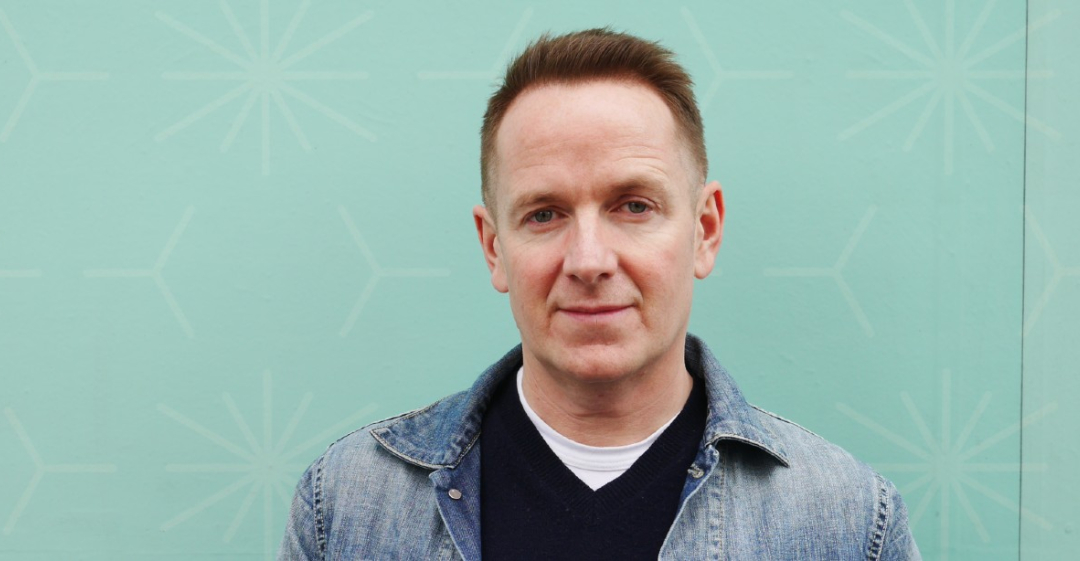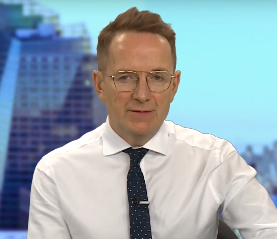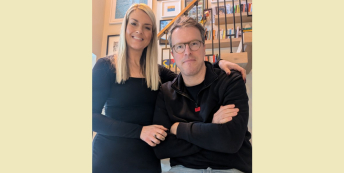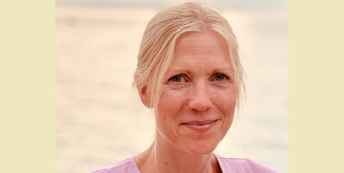“I didn't want to get to my deathbed and wonder ‘what if?’.”

What work were you doing previously?
I was in the TV industry and worked at the BBC.
I’d worked my way up through to mid-management level in scheduling and channel management.
What are you doing now?
I'm the co-founder of a FX (Forex currency trading) specialist company called The Adamis Principle.
I head up the mentoring arm.
We help people who want to become institutional traders within futures desks, or who want to trade their own money, by teaching them how to navigate markets.
We also encourage them with their careers, and have a recruitment arm.
We want to smash down barriers to show it's never too late to move into this field.
How did you feel in your work before you decided to make the change?
I loved everything about it.
Good people, it was great to be a creative, and that's what I thought I was going to do forever.
I came to a point where I had my outside hobbies and interests along with my day job, and that was my peak.
But that’s where I felt I'd plateaued somewhat and needed a change. I wasn't feeling as fulfilled, curious or excited about my career and wanted something new.
How did you choose your new career?
Even though I didn't really act on it, for a long time I'd felt a fascination with markets and trading.
I'd watched films like Wall Street, and was curious if the reality matched what I’d seen.
I met a very big futures trader who worked in the City and I asked him if he'd take me to his trading floor.
When I walked in and heard the cacophony of noise with all of these screens, I thought 'I want this'.
During that week, pre and post the day at the trading floor, I’d been checking out financial sites like Bloomberg, Reuters, started looking at markets and getting a sense of how it all worked.
But what really did it for me was that experience on the trading floor. There’s only so much you can do from reading things online. When you're in it, at an institutional trading set up, and you're feeling it, it’s a whole different thing.
When was the moment you decided to make the change?
I’d spoken to a long-serving staff member at work who was about to retire.
He said “Look, just follow your passion. No one is living your life for you. Don't get to your retirement age thinking ‘oh I wish I'd done that'”.
I thought I didn't want to get to my deathbed and wonder ‘what if?’.
I was in my late thirties, had no children, I was single, I'd saved up a bit of money so I had some runway which was really important.
I've not been immune to taking some kind of risks in my life, like living in a different country, and I just thought there's nothing stopping me from making this change.
I asked myself if I had the passion, curiosity and inclination to do it and the answer was yes.
Are you happy with the change?
Yes.
It's the best thing I've ever done.
I wanted a job that's going to have me jump out of bed clicking my heels and I have to say that's what I have with my job now. I'm pinching myself.
And it just gets better as time goes on.
What do you miss and what don't you miss?
I sometimes do miss the 9-5 aspects of work, the water cooler conversations, and that 'Friday feeling'.
I miss the regular paycheques!
And in a funny way I miss that sense of security or predictability, in knowing that next month I’d be doing the same thing.
But I don't miss not having the freedom I have now, and not being able to do exactly what I want to do.
And I don't miss being a small cog in a big wheel.
How did you go about making the shift?
After my experience of visiting the trading floor for the first time, I did an apprenticeship for a year, surrounded by 21 year olds.
It was a baptism of fire, but I knew deep in my bones that it was the right thing to do. It wasn't like I'd always wanted to be a trader, it was just a feeling inside that 'I'm going to do this, and this is it'.
After I cut my teeth in futures trading, I moved to a small hedge fund, went from futures to spot FX, then after that I met my boss and we decided to form our own company.
When we started to transition to having a small business, we kept our costs really tight. We didn't want big overheads or a lot of costs going out in the first 3-6 months, and we built things up slowly. We do a lot of our advertising on social media and we use freelancers.
Is there anything you would have done differently?
I would have done it sooner, but better late than never.
How did you handle your finances to make your shift possible?
During my apprenticeship year, I did some freelance floor managing for my old job, usually at the weekends.
I had some trading money that I put into learning and trading, but I didn't want to eat into it.
So I recommend doing some freelance work if you can, to keep some money coming in. It also gave me some security in that if for whatever reason this new path hadn't worked out the way I'd wanted it to, I'd have something to fall back on.
What was the most difficult thing about changing?
In practical terms, concerns around having enough financial runway for the transition and being scared of not having a regular paycheque.
But the most difficult thing was myself and my thoughts. I had imposter syndrome, just not believing in myself. I had thoughts that I'm too old, I'm not clever enough, I'm not quick enough (my reactions were slow on the desk at the time), and feeling like I didn't have the right to be there as a trader.
All of that was nonsense!
What help did you get? 
I got two mentors.
One of them didn’t just teach me about markets, but also helped give me a reality check.
He told me “you know not everyone's got this worked out. Even the biggest people in the industry, some of them are winging it, some of them got lucky, some of them are super clever but they all have doubts. We're all human. So just put the work in and you'll get the results.”
That really helped me, as it was a big trader giving me advice.
And then for setting up our business, we got advice from government bodies and from our bank. We found a lot of forums online for small businesses which helped, and we also had friends who'd opened up startups so asked for advice from them.
What would you advise others to do in the same situation?
Do it.
It doesn't mean you have to do it in one day! Put in some baby steps and do some background work while you're still at your current job.
If you put in small actions each day, when you get to the point where you are ready to leave your old career, you're prepared and have a bit of a runway.
There's nothing wrong with trying something new and if it doesn't work out, there's no failure there, because at least you tried and found out.
I'd say if you're remotely curious about a different path, put in the work and make that change because you'll never look back.
You can connect with Patrick on LinkedIn.
What lessons could you take from Patrick's story to use in your own career change? Let us know in the comments below.



